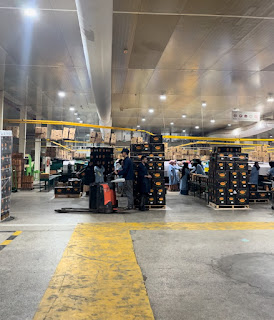Gender Roles in Agriculture

Before we started our journey in Morocco, I was curious about the gender roles within Moroccan society and if women were treated equal to their male counterparts. I had heard rumors about the “Muslim way” of treating women as property to be owned; In all reality, I soon learned that is the farthest thing from the truth. I believe that most Americans have a very skewed view of Islamic cultures and their beliefs because of our limited view of radical groups loosely connected to the religion. While the common stereotype I had heard was proven to be vastly blown out of proportion, I did learn that the gender roles they live by are fairly different than our own. When visiting ag operations across the country, I noticed Moroccan culture has specific roles for each gender within the labor/service sectors. Focusing on agriculture, I surprisingly found that about 57% of the agriculture labor force is female (1994). In these roles, they empha...